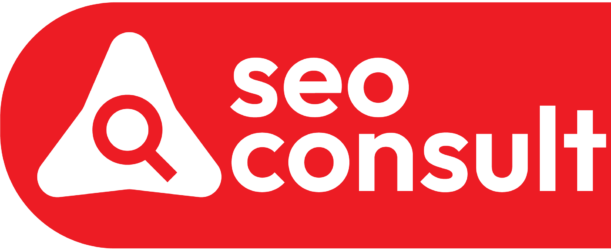In the realm of digital marketing, social media has become an indispensable tool for small businesses striving to enhance their online presence and connect with their target audience authentically. With a myriad of strategies available, understanding the core principles of effective social media marketing is crucial for achieving tangible results.
By focusing on key aspects such as setting clear objectives, leveraging platform-specific tactics, and maintaining a consistent brand voice, small businesses can create a strong foundation for success in the competitive digital landscape. These five essential tips offer a roadmap for businesses looking to optimize their social media efforts and elevate their online engagement effectively.
Setting Clear Marketing Goals
In the realm of social media marketing, establishing clear and measurable marketing goals is the foundational step towards achieving success and maximizing the impact of your online presence.
Measuring success and tracking analytics are essential components of this process. By defining specific objectives such as increasing brand awareness, driving website traffic, boosting engagement, or generating leads, small businesses can align their social media efforts with overarching business objectives.
These goals should be SMART (Specific, Measurable, Achievable, Relevant, Time-bound) to provide a clear roadmap for success.
Regularly monitoring key performance indicators (KPIs) and analyzing relevant metrics will help in evaluating the effectiveness of social media strategies, enabling businesses to make data-driven decisions and optimize their online presence for better results.
Choosing the Right Social Platforms
To effectively navigate the diverse landscape of social media marketing, strategic selection of the most suitable platforms is crucial for small businesses aiming to maximize their online reach and engagement. When choosing the right social platforms, considering the target audience demographics and psychographics is essential.
Understanding where your target audience spends their time online will help in directing your efforts effectively. Additionally, analyzing the content formats that perform well on different platforms is key. Some platforms may be more suited for visual content like images and videos, while others may be better for text-based posts.
Leveraging Strategic Hashtags
When crafting a social media strategy, the strategic use of hashtags can significantly amplify content reach and engagement, making it imperative for small businesses to understand the dynamics of leveraging hashtags effectively. Hashtag optimization involves selecting relevant and specific tags that resonate with the target audience, increasing visibility and attracting interested users.
Strategic hashtag usage not only categorizes content but also fosters community building by connecting individuals with shared interests. By incorporating popular and niche hashtags, businesses can enhance their posts' discoverability and engagement levels. Monitoring trending hashtags and creating custom ones can further boost audience engagement and participation.
Small businesses must harness the power of hashtags to expand their reach and cultivate a loyal online community.
Establishing Separate Business Accounts
Establishing separate business accounts on social media platforms is a strategic approach that small businesses can leverage to enhance brand visibility and engagement with distinct target audiences. By creating dedicated accounts, businesses can tailor their content strategy to specific audience segments, ensuring relevance and resonance.
This targeted approach allows for more personalized interactions, leading to increased audience engagement and loyalty. Moreover, separate business accounts enable businesses to maintain a cohesive brand identity while catering to diverse customer needs and preferences.
Through consistent and tailored content, businesses can effectively connect with their audience, build relationships, and drive meaningful interactions. By aligning content strategy with audience engagement, businesses can optimize their social media presence and achieve their marketing objectives efficiently.
Aligning SMART Goals With Strategy
Strategically aligning SMART goals with the overall marketing strategy is crucial for small businesses looking to optimize their social media presence and achieve targeted objectives efficiently. By setting Specific, Measurable, Achievable, Relevant, and Time-bound goals, businesses can track performance and analyze data effectively.
This alignment ensures that social media efforts directly contribute to the broader marketing strategy, maximizing the impact of each post, campaign, or interaction. Tracking performance metrics such as engagement rates, click-throughs, and conversions allows for real-time adjustments to optimize results.
Analyzing data derived from social media platforms provides valuable insights into audience behavior, preferences, and trends, enabling businesses to tailor their content and strategies for better engagement and conversion rates.
Frequently Asked Questions
How Can Small Businesses Effectively Leverage Influencer Marketing on Social Media Platforms?
Incorporating influencer partnerships and engagement strategies can be pivotal for small businesses aiming to leverage social media platforms effectively.
By collaborating with micro-influencers, businesses can tap into niche audiences. Encouraging user-generated content from these influencers can enhance authenticity and engagement.
Implementing targeted strategies to build relationships with influencers and foster genuine interactions with their followers can yield impactful results in the realm of social media marketing for small businesses.
What Are Some Creative Ways for Small Businesses to Engage With Their Audience on Social Media Beyond Traditional Posts and Ads?
Engaging with audiences on social media beyond traditional posts and ads can be achieved through interactive contests, live Q&A sessions, user-generated content campaigns, and virtual events.
These creative approaches foster deeper connections, encourage participation, and enhance brand visibility.
How Can Small Businesses Effectively Track and Measure the ROI of Their Social Media Marketing Efforts?
To effectively track and measure the ROI of social media marketing efforts, small businesses should focus on:
- Tracking conversions
- Analyzing engagement
- Measuring reach
- Calculating ROI
Utilizing analytics tools to monitor key metrics such as clicks, conversions, and engagement rates is crucial. By setting clear goals, establishing KPIs, and regularly evaluating performance against these benchmarks, businesses can make data-driven decisions to optimize their social media strategies and maximize their ROI.
What Are Some Common Mistakes That Small Businesses Should Avoid When It Comes to Social Media Marketing?
When it comes to social media marketing, small businesses should avoid common mistakes such as:
- Inconsistent brand messaging,
- Neglecting audience engagement,
- Lack of a defined content strategy,
- Focusing solely on promotion, and
- Failing to monitor performance metrics.
How Can Small Businesses Stay Updated on the Latest Social Media Trends and Algorithm Changes to Ensure Their Strategies Remain Effective?
To stay abreast of the latest social media trends and algorithm changes, small businesses should conduct regular trend analysis to understand evolving patterns in user behavior and platform features.
Following reputable industry blogs, attending webinars, and engaging with social media communities can provide insights. Additionally, staying informed about algorithm updates directly from platform announcements and utilizing analytics tools can help tailor engagement strategies and audience interaction to align with evolving trends and algorithms for enhanced effectiveness.
Conclusion
In conclusion, small businesses can enhance their social media marketing efforts by:
- Setting clear goals
- Selecting the right platforms
- Utilizing strategic hashtags
- Establishing separate business accounts
- Aligning SMART goals with their overall strategy
By following these essential tips, small businesses can effectively engage their target audience, increase brand visibility, and drive meaningful interactions that ultimately lead to sustainable growth and success in the digital landscape.










